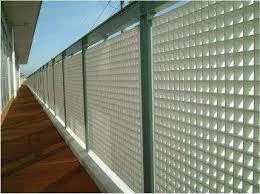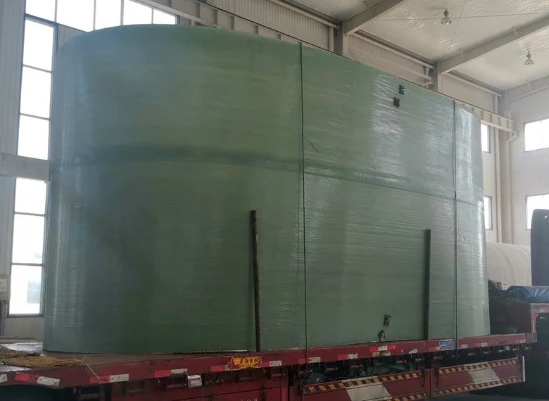
-
 Afrikaans
Afrikaans -
 Albanian
Albanian -
 Amharic
Amharic -
 Arabic
Arabic -
 Armenian
Armenian -
 Azerbaijani
Azerbaijani -
 Basque
Basque -
 Belarusian
Belarusian -
 Bengali
Bengali -
 Bosnian
Bosnian -
 Bulgarian
Bulgarian -
 Catalan
Catalan -
 Cebuano
Cebuano -
 China
China -
 China (Taiwan)
China (Taiwan) -
 Corsican
Corsican -
 Croatian
Croatian -
 Czech
Czech -
 Danish
Danish -
 Dutch
Dutch -
 English
English -
 Esperanto
Esperanto -
 Estonian
Estonian -
 Finnish
Finnish -
 French
French -
 Frisian
Frisian -
 Galician
Galician -
 Georgian
Georgian -
 German
German -
 Greek
Greek -
 Gujarati
Gujarati -
 Haitian Creole
Haitian Creole -
 hausa
hausa -
 hawaiian
hawaiian -
 Hebrew
Hebrew -
 Hindi
Hindi -
 Miao
Miao -
 Hungarian
Hungarian -
 Icelandic
Icelandic -
 igbo
igbo -
 Indonesian
Indonesian -
 irish
irish -
 Italian
Italian -
 Japanese
Japanese -
 Javanese
Javanese -
 Kannada
Kannada -
 kazakh
kazakh -
 Khmer
Khmer -
 Rwandese
Rwandese -
 Korean
Korean -
 Kurdish
Kurdish -
 Kyrgyz
Kyrgyz -
 Lao
Lao -
 Latin
Latin -
 Latvian
Latvian -
 Lithuanian
Lithuanian -
 Luxembourgish
Luxembourgish -
 Macedonian
Macedonian -
 Malgashi
Malgashi -
 Malay
Malay -
 Malayalam
Malayalam -
 Maltese
Maltese -
 Maori
Maori -
 Marathi
Marathi -
 Mongolian
Mongolian -
 Myanmar
Myanmar -
 Nepali
Nepali -
 Norwegian
Norwegian -
 Norwegian
Norwegian -
 Occitan
Occitan -
 Pashto
Pashto -
 Persian
Persian -
 Polish
Polish -
 Portuguese
Portuguese -
 Punjabi
Punjabi -
 Romanian
Romanian -
 Russian
Russian -
 Samoan
Samoan -
 Scottish Gaelic
Scottish Gaelic -
 Serbian
Serbian -
 Sesotho
Sesotho -
 Shona
Shona -
 Sindhi
Sindhi -
 Sinhala
Sinhala -
 Slovak
Slovak -
 Slovenian
Slovenian -
 Somali
Somali -
 Spanish
Spanish -
 Sundanese
Sundanese -
 Swahili
Swahili -
 Swedish
Swedish -
 Tagalog
Tagalog -
 Tajik
Tajik -
 Tamil
Tamil -
 Tatar
Tatar -
 Telugu
Telugu -
 Thai
Thai -
 Turkish
Turkish -
 Turkmen
Turkmen -
 Ukrainian
Ukrainian -
 Urdu
Urdu -
 Uighur
Uighur -
 Uzbek
Uzbek -
 Vietnamese
Vietnamese -
 Welsh
Welsh -
 Bantu
Bantu -
 Yiddish
Yiddish -
 Yoruba
Yoruba -
 Zulu
Zulu
Feb . 16, 2025 10:31
Back to list
Ladders & Handrails
The evolution of materials used in sewer systems has significantly transformed over the years, with fiberglass sewer pipes establishing a notable reputation for their durability and efficiency. For municipalities and private sectors looking to upgrade their sewage infrastructure, understanding the benefits and practical experiences associated with fiberglass sewer pipes is essential for making informed decisions.
Authoritative sources, such as the American Water Works Association (AWWA), have rigorously tested and rated fiberglass sewer pipes, ensuring they meet stringent quality and safety standards. Such endorsement underscores their reliability and positions them as a preferred option for sewer infrastructure projects worldwide. The environmental benefits of fiberglass sewer pipes cannot be overlooked either. Their manufacture involves less energy compared to traditional materials, and their longevity means fewer replacements and less material waste. In an era where sustainability is paramount, fiberglass sewer pipes align with green building initiatives and regulations, providing a responsible choice for eco-conscious entities. Furthermore, the trustworthiness of fiberglass sewer pipes is often validated by field performance. Long-term projects that have utilized these pipes report minimal operational issues, and the positive feedback from municipal engineering departments reinforces their viability. For instance, a wastewater treatment facility in California that replaced its outdated system with fiberglass pipes noted a drastic reduction in maintenance downtimes and costs, allowing them to reallocate resources to other critical areas of operation. In conclusion, fiberglass sewer pipes represent a blend of modern engineering solutions, expert endorsement, and proven field performance. Their technical advantages—such as corrosion resistance, customizability, and superior flow attributes—make them an intelligent choice for those aiming to enhance their sewer systems' performance and longevity. As more infrastructure projects lean towards sustainable practices, the role of fiberglass sewer pipes in meeting these demands cannot be underestimated. With a strong track record and expert validation, they continue to stand out as a top-tier choice in the realm of sewer infrastructure.


Authoritative sources, such as the American Water Works Association (AWWA), have rigorously tested and rated fiberglass sewer pipes, ensuring they meet stringent quality and safety standards. Such endorsement underscores their reliability and positions them as a preferred option for sewer infrastructure projects worldwide. The environmental benefits of fiberglass sewer pipes cannot be overlooked either. Their manufacture involves less energy compared to traditional materials, and their longevity means fewer replacements and less material waste. In an era where sustainability is paramount, fiberglass sewer pipes align with green building initiatives and regulations, providing a responsible choice for eco-conscious entities. Furthermore, the trustworthiness of fiberglass sewer pipes is often validated by field performance. Long-term projects that have utilized these pipes report minimal operational issues, and the positive feedback from municipal engineering departments reinforces their viability. For instance, a wastewater treatment facility in California that replaced its outdated system with fiberglass pipes noted a drastic reduction in maintenance downtimes and costs, allowing them to reallocate resources to other critical areas of operation. In conclusion, fiberglass sewer pipes represent a blend of modern engineering solutions, expert endorsement, and proven field performance. Their technical advantages—such as corrosion resistance, customizability, and superior flow attributes—make them an intelligent choice for those aiming to enhance their sewer systems' performance and longevity. As more infrastructure projects lean towards sustainable practices, the role of fiberglass sewer pipes in meeting these demands cannot be underestimated. With a strong track record and expert validation, they continue to stand out as a top-tier choice in the realm of sewer infrastructure.
Next:
Related Products









